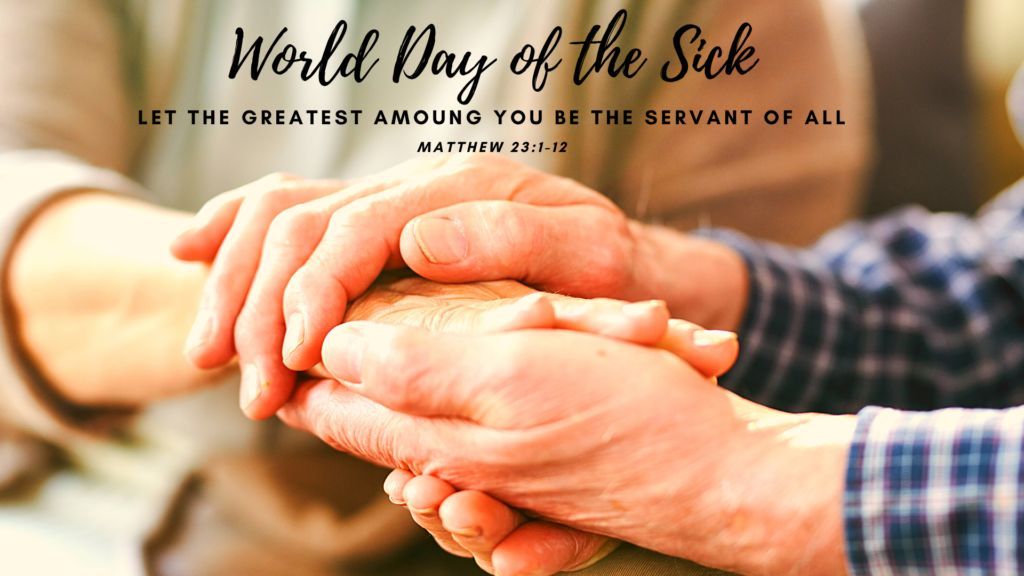
Thirty years ago, Saint John Paul II instituted the World Day of the Sick to encourage the people of God to be increasingly attentive to the sick and to those who care for them. Here’s some extracts from our Holy Father, Pope Francis’, message for this year, on the theme: “Be merciful, even as your Father is merciful” (Lk 6:36) Standing beside those who suffer on a path of charity.”
This year’s theme: “makes us first turn our gaze towards God… Mercy is God’s name par excellence; mercy, understood not as an occasional sentimental feeling but as an ever-present and active force. It combines strength and tenderness. For this reason, we can say with wonder and gratitude that God’s mercy embraces both fatherhood and motherhood (cf. Is 49:15). God cares for us with the strength of a father and the tenderness of a mother. The supreme witness of the Father’s merciful love for the sick is his only-begotten Son. How often do the Gospels relate Jesus’ encounters with people suffering from various diseases! He “went about all Galilee, teaching in their synagogues and preaching the gospel of the kingdom and healing every disease and every infirmity among the people” (Mt 4:23). We do well to ask ourselves why Jesus showed such great concern for the sick, so much so that he made it paramount in the mission of the apostles… sent by the Master to proclaim the Gospel and to heal the sick (cf. Lk 9:2).When individuals experience frailty and suffering in their own flesh as a result of illness, their hearts become heavy, fear spreads, uncertainties multiply, and questions about the meaning of what is happening in their lives become all the more urgent. How can we forget, in this regard, all those patients who, during this time of pandemic spent the last part of their earthly life in solitude, in an intensive care unit, assisted by generous healthcare workers, yet far from their loved ones and the most important people in their lives? This helps us to see how important is the presence at our side of witnesses to God’s charity, who, following the example of Jesus, the very mercy of the Father, pour the balm of consolation and the wine of hope on the wounds of the sick.”
“Dear healthcare workers, your service alongside the sick, carried out with love and competence, transcends the bounds of your profession and becomes a mission. Your hands, which touch the suffering flesh of Christ, can be a sign of the merciful hands of the Father. Be mindful of the great dignity of your profession, as well as the responsibility that it entails.”
“Patients are always more important than their diseases, and for this reason, no therapeutic approach can prescind from listening to the patient, his or her history, anxieties and fears. Even when healing is not possible, care can always be given. It is always possible to console, it is always possible to make people sense a closeness that is more interested in the person than in his or her pathology.”
“I would like to remind everyone that closeness to the sick and their pastoral care is not only the task of certain specifically designated ministers; visiting the sick is an invitation that Christ addresses to all his disciples. How many sick and elderly people are living at home and waiting for a visit! The ministry of consolation is a task for every baptized person, mindful of the word of Jesus: “I was sick and you visited me” (Mt 25:36). Dear brothers and sisters, to the intercession of Mary, Health of the Infirm, I entrust all the sick and their families. United with Christ, who bears the pain of the world, may they find meaning, consolation and trust. I pray for healthcare workers everywhere, that, rich in mercy, they may offer patients, together with suitable care, their fraternal closeness.”
